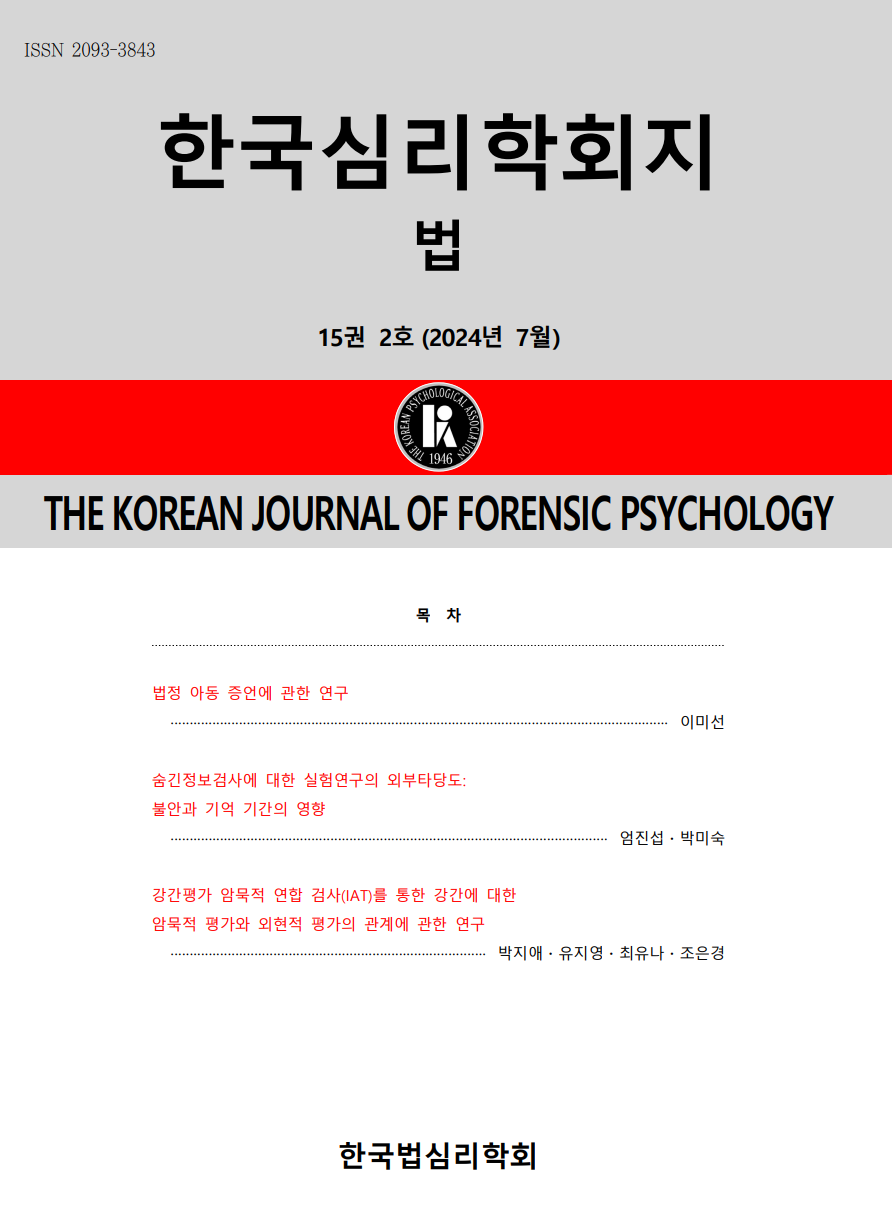open access
메뉴
open access
메뉴 ISSN : 2093-3843
ISSN : 2093-3843
Unfortunately, a growing number of children are subjected to sexual or physical abuse in our society as well as in the worldwide. Increased awareness of such issue has resulted in many children coming forward to testify regarding what they have witnessed or experienced. However, compared to adults, children are seriously vulnerable to various types of influences when providing elaborate reports of their experiences. For example, children’s reports are affected by several developmental characteristics in abilities to communicate, concepts of time, differentiating between fantasy and reality and so forth. Indeed, extensive empirical evidence in this field has supported that there is a great deal of developmental capacities and limitations in children’s testimony and yet there has been few articles to review what we currently know about the capacities and limitations of children’s testimony with developmental perspective. Thus, the goal of this paper is to consolidate the body of knowledge related to critical variables impacting on children’s testimony. Ultimately, it would be helpful for interviewers and legal professionals to have a better understanding and ensure the optimal conditions for children to deliver accurate and detailed accounts of their past experiences.